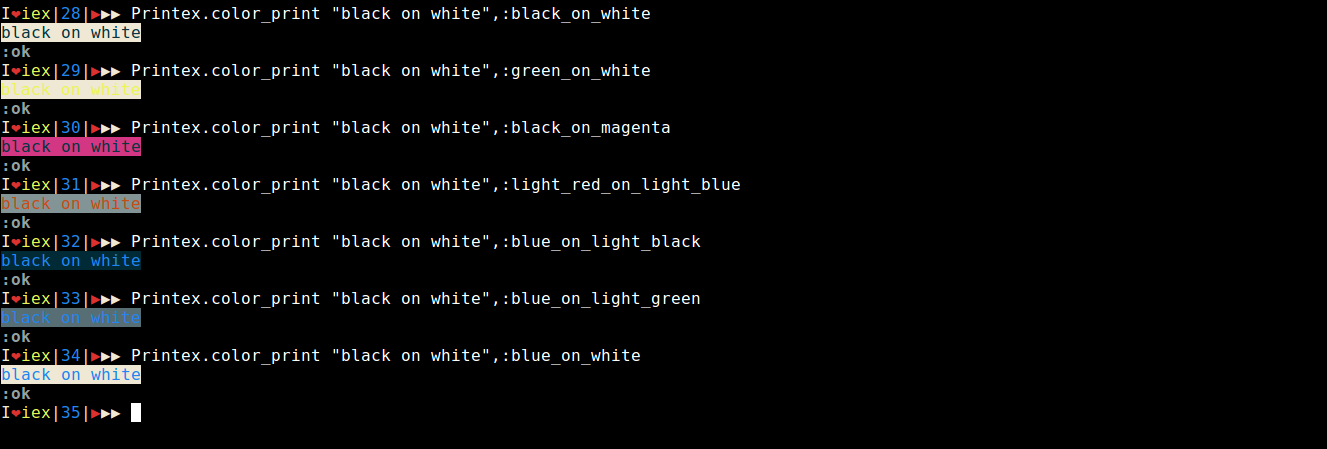1 — Code Grouping
Code grouping stands for something great. It shows you how your code is grouped when you write multiple lines of code in single line with out using braces. It will be more clear with the following example.
one 1 |> two()
If you want to see how this line of code is grouped into, you can check in the following format..
quote(do: one 1 |> two()) |> Macro.to_string |> IO.puts
one(1 |> two())
So, by using the code and Macro.to_string you can see how our code is grouped.
2 — Elixir Short Circuit Operators && — ||
These replaces the nested complicated conditions. These are my best friends in the situations dealing with more complex comparisons. Trust me you gonna love this.
The || operator always returns the first expression which is true. Elixir doesn’t
care about the remaining expressions, and won’t evaluate them after a match has
been found.
||
false || nil || :blackode || :elixir || :jose
Here, if you observe the first expression, it is false next nil is also false
in elixir, next :blackode which evaluates to true and its value is returned
immediately with out evaluating the :elixir and :jose . Similarly if all the
statements evaluates to false the last expression is returned.
&&
iex> true && :true && :elixir && 5
5
iex> nil && 100
nil
iex> salary = is_login && is_admin && is_staff && 100_000
This && returns the second expression if the first expression is true or else
it returns the first expression with out evaluating the second expression. In
the above examples the last one is the situation where we encounter to use the && operator.
3 — Comparing two different data types
I have self experience with this . When I am novice in elixir, I just
compared "5" > 4 unknowingly by an accident and to my surprise it returned with true.
In Elixir every term can compare with every other term. So one has to be careful in comparisons.
iex> x = "I am x "
"I am x "
iex> x > 34
true
iex> x > [1,2,3]
true
iex> [1,2,3] < 1234567890
false
Order of Comparison
number < atom < reference < fun < port < pid <tuple < map < list < bitstring (binary)
4 — Arithmetic Operators as Lambda functions
When I see this first time, I said to my self “Elixir is Crazy” . This tip really saves time and it resembles your smartness. In Elixir every operator is a macro. So, we can use them as lambda functions.
iex> Enum.reduce([1,2,3], 0, &+/2)
6
iex> Enum.reduce([1,2,3], 0, &*/2)
0
iex> Enum.reduce([1,2,3], 3, &*/2)
18
iex> Enum.reduce([1,2,3], 3, &-/2)
-1
iex> Enum.reduce([1,2,3], 3, &//2)
0.5
5 — Binary pattern matching
This is my recent discovery. I always encounter a situation like converting
"$34.56" which is a string and I suppose do arithmetic operations. I usually
do something like this before binary pattern matching…
value =
"$34.56"
|> String.split("$")
|> tl
|> List.first
|> String.to_float
# Live Execution in IEx
iex> value =
"$34.56"
|> String.split("$")
|> tl
|> List.first
|> String.to_float
34.56 #output
Tip Approach
This tip made my day easy. I recently used this is in one of my projects.
"$" <> value = "$34.56"
String.to_float value
iex> "$" <> value = "$34.56"
"$34.56"
iex> String.to_float value
34.56
6 — Recompiling Project
At beginning stage, I used to press ^c ^c twice and restart shell as iex -S mix
whenever I make changes to the project files. If you are doing this now, stop it
right now. You can just recompile the project.
iex -S mix
iex> recompile()
On Config change
The changes in the config/config.ex are not reflected. You have to restart the
shell again.
7 — Logger Module
Logger is one of my favorite modules. It’s a default module and starts along
with your application. You have to just require this module. When I am new to
Elixir, I always used to write the console outputs as IO.puts "This is value of data"
for code debugging but, those lines get mixed up with other lines of information
and It became hard to trace those lines.
This Logger module solved my problem. It has many features but, I use three
definitions very often warn info and error. Each definition prints the information
with different colors which is easier to find the debug information at a glance.
The best part of module is to print along with the time. It means, printing the time at execution moment. So, you can know the order of statements execution.
Before using the Logger module one has to do require Logger so, all macros will
be loaded inside your working module.
iex> require Logger
Logger
iex> Logger.info "This is the info"
15:04:33.102 [info] This is the info
:ok
iex> Logger.warn "This is warning"
15:04:56.712 [warn] This is warning
:ok
iex> Logger.error "This is error"
15:05:19.570 [error] This is error
:ok
8 — Finding All Started Applications
We can check the all the applications which are started along with our application. Sometimes we have to check whether a particular application is started or not. So, it helps you in those situations.
If you are a beginner, you don’t feel of using this much. But I am pretty sure of this tip will become handy when you work with multiple applications.
iex> Application.started_applications
[{:logger, 'logger', '1.4.0'}, {:iex, 'iex', '1.4.0'},
{:elixir, 'elixir', '1.4.0'}, {:compiler, 'ERTS CXC 138 10', '7.0.1'},
{:stdlib, 'ERTS CXC 138 10', '3.0.1'}, {:kernel, 'ERTS CXC 138 10', '5.0.1'}]
9 — Advantage of Map keys as :atoms and binary(strings)
Before I let you to use this tip, I just want to remind you that :atoms are
not garbage collected. Atom keys are great! If you have a fixed number of them
defined statically in your code, you are in no danger.
You should not convert user supplied input into atoms without sanitizing them first because it can lead to out of memory.
🔥 Be cautious if you create dynamic atoms in your code
But, you can use the . to retrieve the data from the keys as map.key unlike
the usual notation like map["key"] . That really saves the typing. But, I don’t
encourage this because, as a programmer we should really care about memory.
iex> map = %{name: "blackode", blog: "medium"}
%{blog: "medium", name: "blackode"}
iex> map.name
"blackode"
iex> map.blog
"medium"
Be sure that when you try to retrieve a key with . form which is not present
in the map, it will raise a key error instead of returning the nil unlike the
map["key"] which returns nil if key is not present in map.
iex> map["age"]
nil
iex> map.age
Bug Bug ..!!** (KeyError) key :age not found in: %{blog: "medium", name: "blackode"}
Bug Bug ..!!
10. Color Printing
Elixir >=1.4.0 has ANSI color printing option to console. You
can have great fun with colors. You can also provide background colors.
iex> import IO.ANSI
iex> IO.puts red <> "red"<>green<>" green" <> yellow <> " yellow" <> reset <> " normal"
red green yellow normal
The red prints in red color, green in green color, yellow in yellow color and normal in white. Have fun with colors…
For more details on color printing check Printex module which I created for fun in Elixir.

Check out the GitHub repository on Killer Elixir Tips
 Glad if you can contribute with a ★
Glad if you can contribute with a ★
🎉 Happy Coding :)





